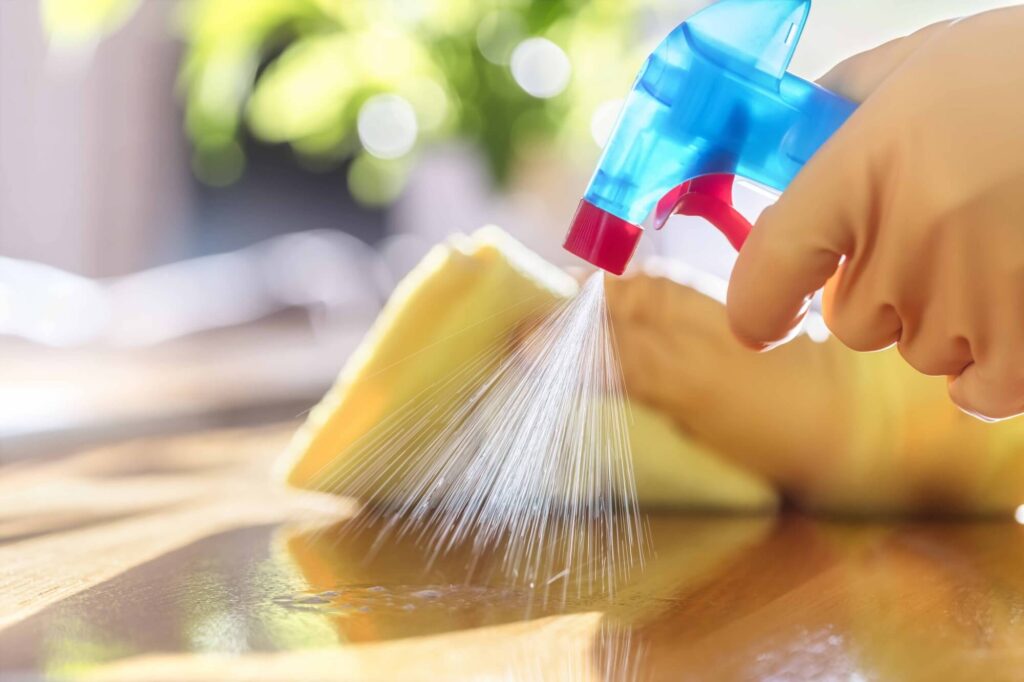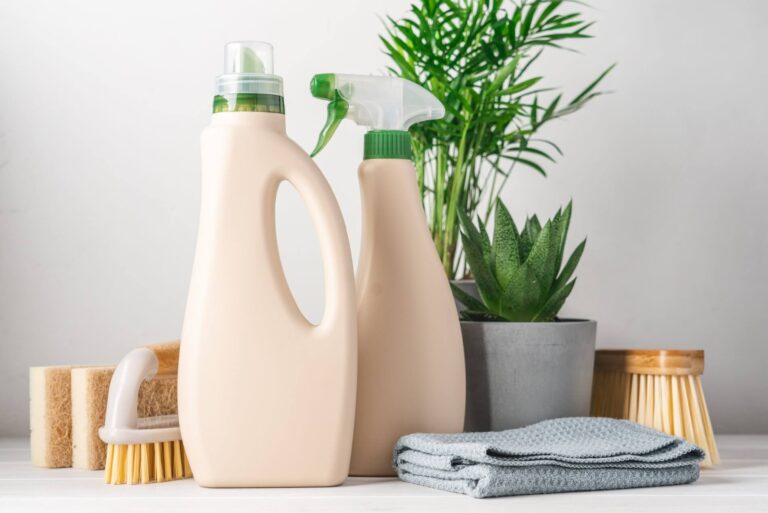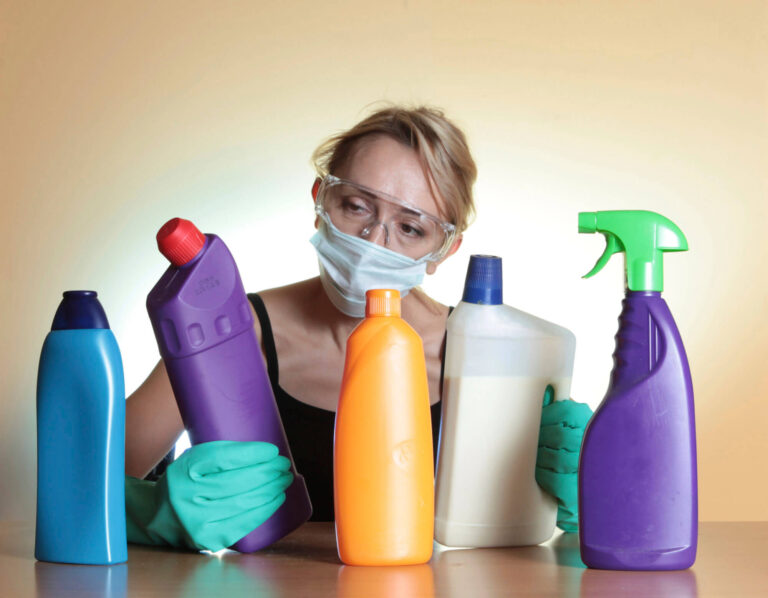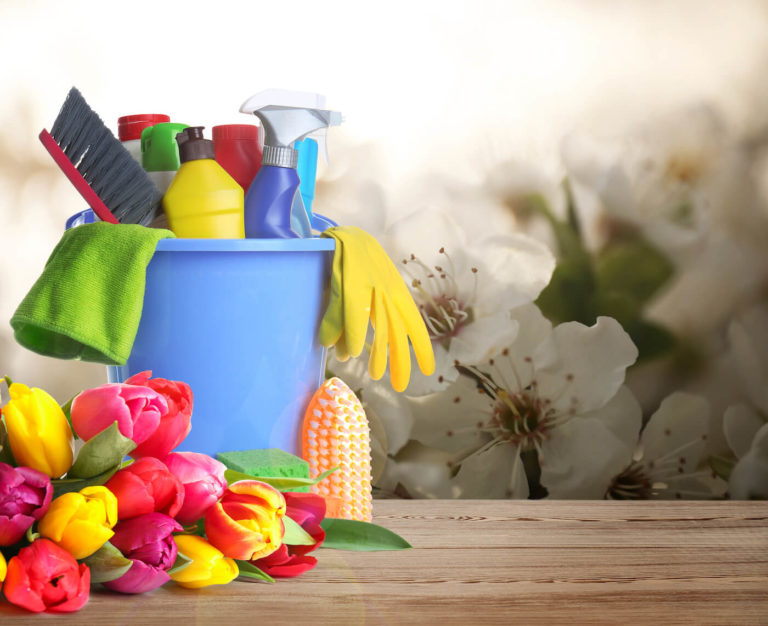
That familiar whoosh of a spray bottle and the sharp scent of cleaning chemicals might signal a clean home, but they could also be raising a red flag for your respiratory health.
For years, researchers have been investigating the link between cleaning products and respiratory problems, particularly asthma. And while many types of cleaners have been scrutinized, spray cleaners have consistently emerged as a potential culprit.
A recent study published in Indoor Air reinforces this concern, finding a significant association between the regular use of spray cleaning products and asthma in adults. This connection is particularly worrisome for families with young children, whose developing lungs are more vulnerable to environmental irritants.
This article explores the hidden dangers of spray cleaners, explains why they pose a risk, and offers practical tips for protecting your family’s respiratory health.
Why Spray Cleaners Raise Concerns
The whoosh of a spray bottle releases a fine mist of cleaning solution into the air, creating tiny droplets that can easily be inhaled. These droplets often contain a mix of chemicals, including volatile organic compounds (VOCs), fragrances, and other irritants that can trigger asthma symptoms and cause lung irritation.
Here’s why spray cleaners are particularly problematic:
- Increased Inhalation: The fine mist from sprays increases the likelihood of inhaling cleaning chemicals deep into the lungs.
- Lingering Fumes: The fumes from spray cleaners can linger in the air long after you’ve finished cleaning, exposing you to prolonged low-level irritation.
- Direct Contact: Sprays can also settle on surfaces, increasing the risk of skin contact with chemicals, which can lead to irritation or sensitization.
For young children, the risks are even greater. Their airways are smaller and more sensitive, making them more susceptible to the effects of inhaled irritants. Research has shown that exposure to cleaning chemicals during early childhood can increase the risk of developing asthma and other respiratory problems later in life.
Safer Cleaning: Alternatives to Spray Products
The good news is that you don’t have to rely on spray cleaners to achieve a clean and hygienic home. Here are some safer alternatives:
- Pre-soaked Wipes: While the Indoor Air study raised concerns about disinfecting wipes, those containing gentler cleaning agents can be a safer alternative to sprays for some tasks.
- Cream or Gel Cleaners: These thicker formulations are less likely to become airborne and often contain fewer VOCs and fragrances.
- DIY Cleaning Solutions: Create your own cleaning solutions using simple and safe ingredients like vinegar, baking soda, and lemon juice. Tip:explore our guide on DIY cleaning solutions for removing stubborn limescale and soap scum.
- Microfiber Cloths: These highly absorbent cloths effectively remove dirt and bacteria without the need for harsh chemicals.
Minimizing Risk: Tips for Using Sprays Safely
If you choose to use spray cleaners, follow these tips to minimize the risks to your respiratory health:
- Read Labels Carefully: Choose products with fewer harsh chemicals and VOCs. Look for the EPA’s Safer Choice label, which indicates that products meet strict safety standards.
- Ventilate Thoroughly: Open windows and doors while cleaning, and use exhaust fans to remove fumes. Continue ventilating for at least 30 minutes after cleaning.
- Avoid Spraying Directly on Surfaces: Instead, spray cleaning solutions onto a cloth or sponge, then wipe surfaces. This reduces the amount of mist released into the air.
- Wear a Mask: If you have asthma or other respiratory sensitivities, wear a mask while cleaning, especially when using sprays.
- Keep Products Out of Reach of Children: Store cleaning products, including sprays, in a secure location out of reach of children.
Everclean: Your Partner in Safe and Effective Cleaning in Ireland
At Everclean, we prioritize the health and safety of our clients. Our professional cleaners use high-quality, eco-friendly cleaning products and techniques that minimize the use of harsh chemicals and sprays.
We offer a range of services, including:
- Deep Cleaning: For a thorough clean that reaches those often-neglected areas, reducing the need for harsh chemicals and frequent cleaning.
- Carpet Cleaning: Removing dust mites, allergens, and other pollutants from your carpets, improving indoor air quality and minimizing asthma triggers.
Contact us today to learn more about our services and how we can help you create a cleaner and healthier home environment.
Conclusion: A Breath of Fresh Air for Your Home
A clean and hygienic home doesn’t have to come at the expense of your respiratory health. By understanding the potential risks of spray cleaners and adopting safer cleaning practices, you can create a healthier environment for your entire family.
Remember, small changes can make a big difference. Choose gentler cleaning solutions, prioritize ventilation, and consider professional cleaning services for a deeper clean that minimizes chemical exposure. Here’s to a cleaner, healthier home where you can breathe easy!


